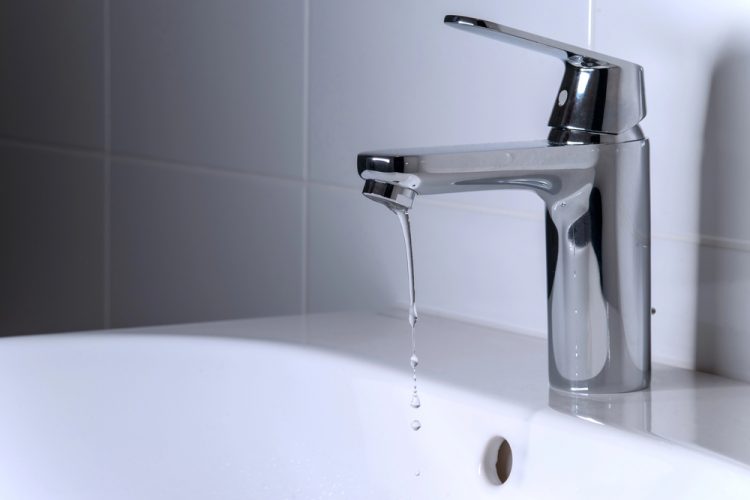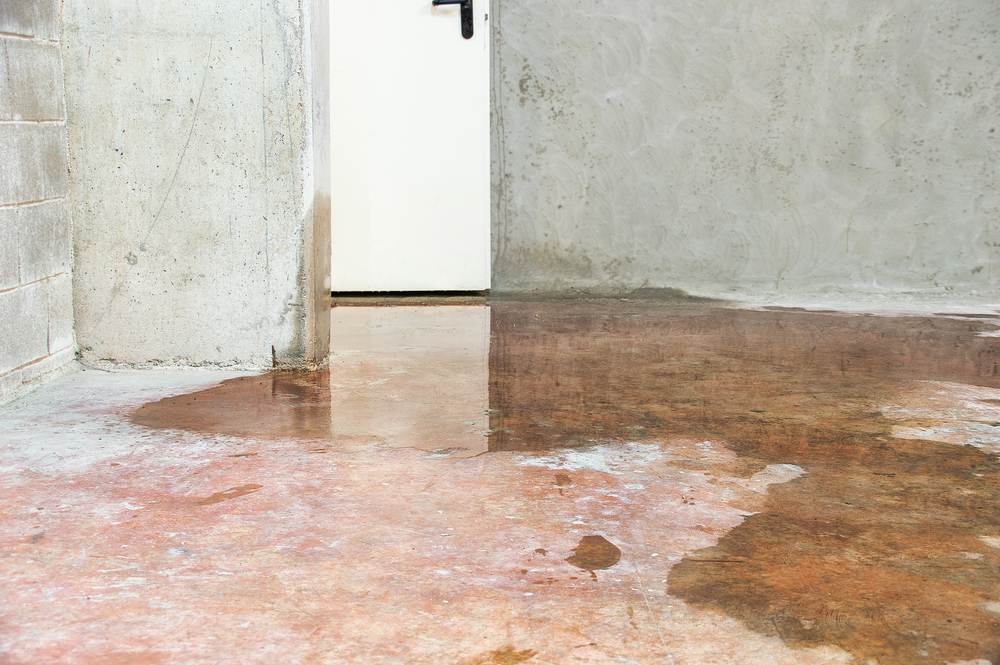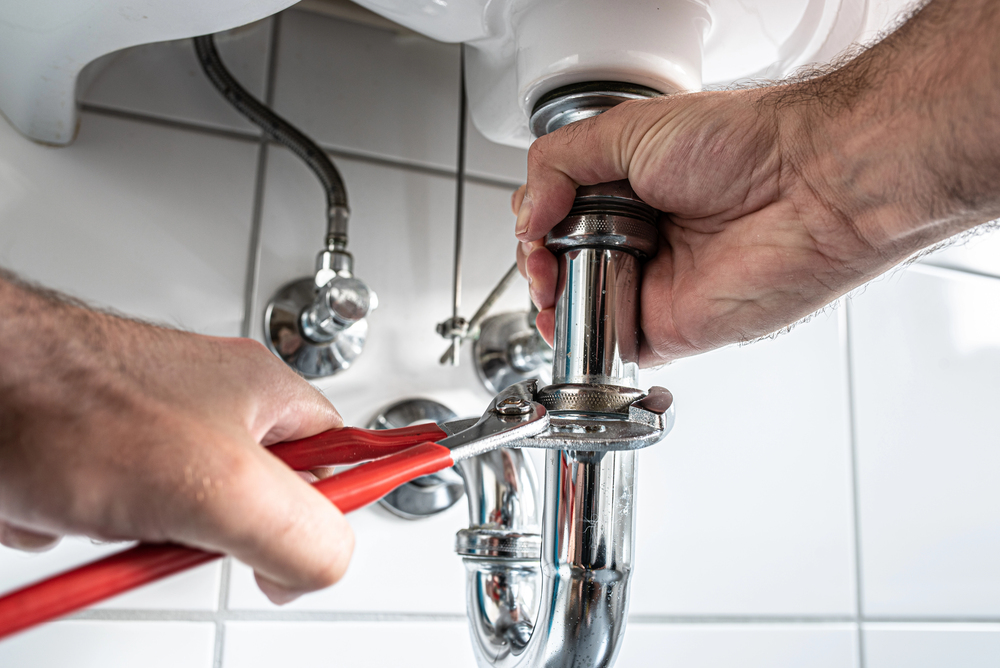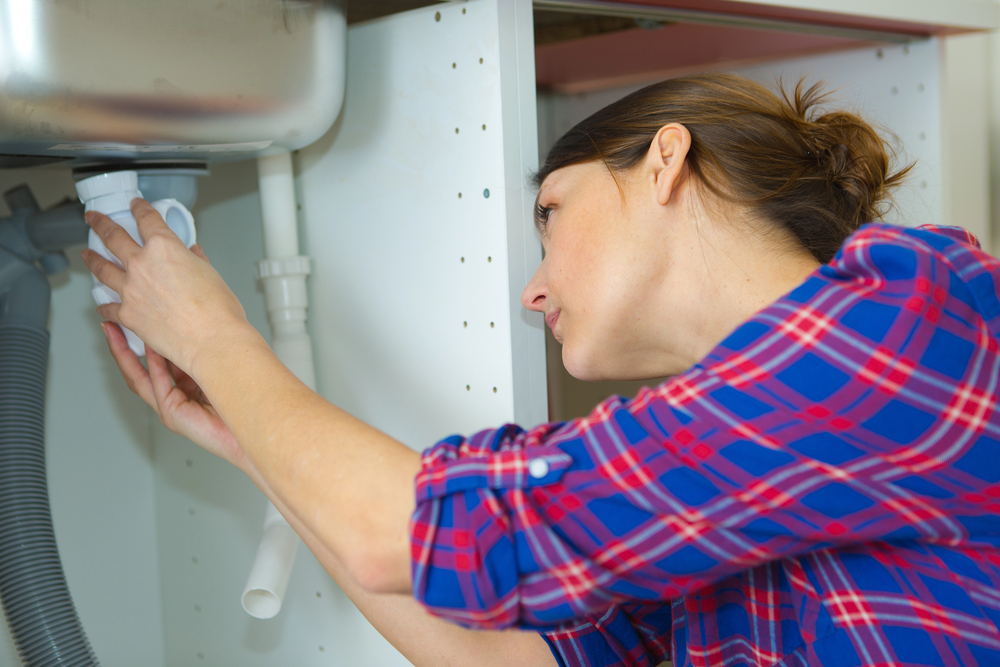Can A Clogged Drain Cause Low Water Pressure?
Book today with Z PLUMBERZ of North America.
A sudden and unexplained drop in water flow from your faucets often points to a hidden plumbing issue that requires immediate attention from skilled professionals. Most homeowners typically suspect that problems with the main water supply line or the water heater are to blame. While those are common causes, one less obvious yet impactful issue may lie within your drain system.
A question worth considering in such cases is, can a clogged drain cause low water pressure? The relationship between your drainage lines and the consistent water pressure throughout your home or commercial property is more connected than it might appear.
Gaining a better understanding of this connection plays a key role in diagnosing and preventing future plumbing disruptions.

How Water Pressure Works in Plumbing Systems
Water pressure refers to the force that pushes water through your plumbing system and allows it to reach faucets, toilets, and showerheads with sufficient strength.
Municipal utility companies typically supply water under a fixed amount of pressure, which flows into your property through the main line. Once inside, the water travels through a network of internal pipes that deliver it to various fixtures throughout the building.
Several factors affect this pressure. These include the diameter of the pipes, vertical elevation between the water source and fixtures, and the overall condition of the plumbing infrastructure. Older pipes with corrosion or buildup may restrict flow, while even small leaks reduce pressure significantly.
Common Signs of a Clogged Drain at Home
Spotting early warning signs of a clogged drain allows homeowners to intervene before the problem worsens and impacts water usage. Everyday plumbing tasks often highlight developing blockages that require closer inspection.
- Slow Draining: When water in sinks, tubs, or showers drains slowly or lingers before disappearing, a partial blockage is likely forming inside the pipe.
- Unpleasant Odors: Persistent foul smells coming from drains often result from decomposing organic matter, such as food particles, grease, or hair, trapped within the pipes.
- Gurgling Noises: If you hear bubbling or gurgling sounds when water drains, this typically means air is being displaced due to a blockage interrupting normal water flow.
- Water Backups: When water rises and spills out of a fixture unexpectedly, a complete obstruction in the drainpipe is usually to blame. This kind of backup requires immediate action.
Types of Drain Clogs That Affect Water Flow
Clogs form from a variety of materials, each presenting unique challenges and affecting the flow of water differently. Understanding the type of blockage can help in choosing the correct removal method.
- Hair and Soap Scum: Hair and soap residue tend to stick together and attach to pipe walls, forming dense, sticky clogs that narrow the pipe’s interior over time. Showers and bathroom sinks are especially vulnerable to this type of buildup.
- Grease and Food Particles: Kitchen sinks often suffer from hardened grease and food waste clinging to the pipes. As grease cools, it solidifies and traps other debris, quickly creating blockages that significantly reduce drainage.
- Foreign Objects: Small items like toys, jewelry, or hygiene products may fall into drains and create instant blockages. These objects completely obstruct flow and must be physically removed to restore proper function.
- Mineral Buildup: Homes with hard water experience mineral deposits inside their pipes. Over time, calcium and magnesium accumulate, reducing the pipe’s internal space and contributing to both poor drainage and lower water pressure throughout the system.
How to Test for a Clogged Drain Easily
Several simple diagnostic steps can help you identify a drain clog before calling for professional service. These tests provide quick insight into the presence and severity of any blockage.
Start by checking more than one drain to determine if the problem is isolated or widespread. Turn on the water in a sink or bathtub and observe how fast it drains. If it drains slowly, the pipe may be partially clogged. Listen for unusual sounds in nearby drains when water is running, as gurgling often indicates trapped air from a blockage.
You can also pour a large bucket of water into a questionable drain and observe the flow. Water that backs up or drains slowly suggests a developing obstruction.
DIY Methods to Clear a Clogged Drain
Minor drain clogs can often be resolved with common tools and everyday household products. These do-it-yourself solutions are helpful for shallow or recently formed blockages.
One method involves pouring baking soda followed by vinegar down the drain. Allow the reaction to sit for a few hours before flushing with hot water to help break down grease and organic residue. A plunger is also useful; creating a strong seal around the drain and using repeated force can dislodge clogs by pressure alone.
If the blockage remains, carefully insert a drain snake or unbent wire hanger to physically remove or push through the material. Exercise caution when using chemical drain cleaners. These products may seem convenient, but they often damage pipes and pose health hazards if misused.
Tools Professionals Use to Clear Drain Clogs
When household methods do not solve the problem, professional plumbers step in with specialized tools designed for deeper and more stubborn clogs. These tools provide efficient, targeted solutions for complex blockages.
- Drain Snakes: These mechanical tools feature long, flexible cables that reach deep into pipes. Plumbers use them to either cut through or extract the clog, depending on its type and location.
- Hydro-Jetting Machines: High-pressure water jets blast away buildup from the inside walls of pipes. This method is especially effective for hardened grease, mineral scale, and years of debris. Hydro-jetting thoroughly restores the full capacity of your plumbing lines.
- Video Inspection Cameras: Waterproof cameras are inserted into the pipes to visually confirm the blockage’s exact location and cause. This non-invasive method prevents unnecessary pipe removal and helps plan precise repairs.
- Root Augers: These tools feature sharp blades that cut and remove tree roots that have grown into underground sewer lines. Once cleared, water can flow freely again, and future root intrusion can be better managed.
Preventative Measures to Avoid Future Clogs
Establishing consistent preventative habits helps avoid clogged drains and preserves your plumbing system. A few simple practices can go a long way in maintaining clear, unobstructed flow.
Scrape plates and food scraps into the trash instead of rinsing them into the sink. Avoid pouring cooking grease or oil down drains, as these materials solidify and trap other debris. Install mesh drain screens in sinks, showers, and tubs to catch hair, soap scum, and other small objects.
Occasionally, flushing drains with hot water helps dissolve minor buildup before it becomes a problem. Regular maintenance makes a significant difference over time.
Long-Term Effects of Ignoring Drain Clogs
Delaying action on a clogged drain may lead to major plumbing failures that damage both property and health. Small clogs that seem minor at first gradually worsen and strain your plumbing infrastructure.
Continued pressure on pipes can lead to leaks, cracks, or even full pipe bursts, resulting in widespread water damage to floors, ceilings, and walls. Standing water caused by blockages also fosters mold, bacteria, and pests, all of which pose serious health concerns. Lingering foul odors become persistent and unpleasant.
Ultimately, neglecting the issue may require costly repairs such as replacing large sections of your plumbing system. Timely action avoids these consequences.
When to Call a Professional Plumber Instead
Some plumbing issues exceed the scope of DIY methods and clearly require expert intervention. Knowing when to contact a licensed plumber can prevent further damage and restore function quickly.
If multiple fixtures across your home are draining slowly or not at all, the main drain line may be obstructed. Persistent odors from drains that do not respond to cleaning efforts often signal a deep or complex clog.
Backflow between fixtures, such as water rising in a shower when flushing the toilet, also points to a major sewer line issue. Professional plumbers have the training, tools, and experience to resolve these serious problems safely and effectively.
For Emergency Drain Cleaning Services, Call Z PLUMBERZ
Need emergency drain cleaning services for your home or business? Z PLUMBERZ provides swift, reliable solutions for all your plumbing, sewer, and drain issues. Connect with our licensed plumbing experts near me to resolve any plumbing challenge you face. Our team at Z PLUMBERZ works diligently to restore your plumbing system quickly.
Additional benefits of partnering with us include
-

24/7 Emergency Services, Paperless Communication
-

Reduced Rates and Preferred Pricing
-

Preventative Maintenance Scheduling
-

Online Scheduling and Account Management


